8. Kosmos by Reha Erdem
Located in Kars, Turkey, director Reha Erdem takes advantage of a Messianic figure arriving at a rural village under a veil of mystery. He starts to make miracles happen to the village people, apparently before the siege of a war happens at the borders.
However, this modern Messianic figure interpreted by Sermet Yeşil also happens to be a thief behind mysterious words of truth and faith. Apparently in a desperate search for love and answers, he start realizing the cruelness of the real world, a poor and desolate land with no more than gentle and generous people.
With stunning long shots admiring not a white and beautiful winter but a grey and real winter in Turkey, it shows a path to an almost surreal world where everything rises from nothing to finishes in the same manner passing the boundaries of conventional cinema.
This film evolves with the consequences of a better humanity, incapable of seeing evil where God is no good in the eyes of the most profound photography that converges in the forces of one foreign Messianic figure in modern times.
9. Winter Sleep by Nuri Bilge Ceylan
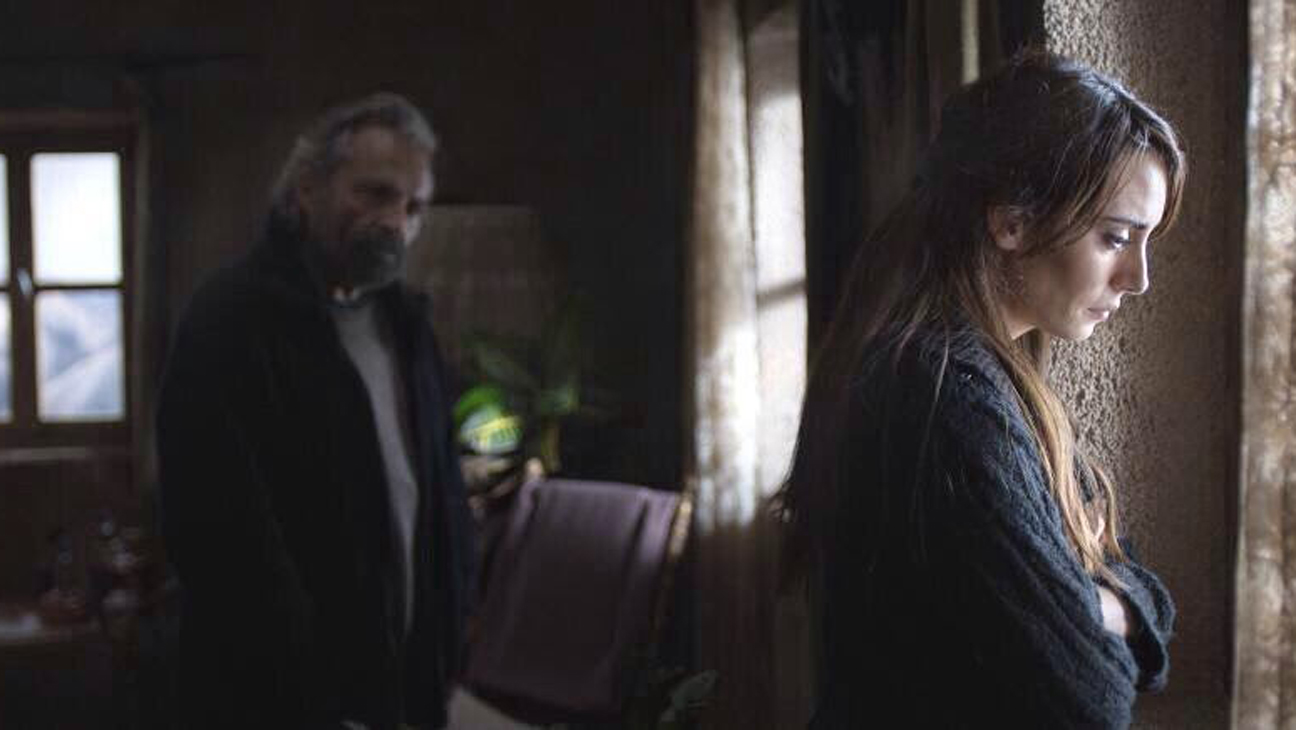
The winner of the Palme d’Or at the Cannes Film festival in 2014, from the director of “Once Upon a Time in Anatolia”, Nuri Bilge Ceylan directs a film about the winter of a man who owns a hotel somewhere in Cappadocia.
This man, Aydin (Haluk Bilginer), is also a landlord that has to deal with the consequences of an disenchanted wife full of youth, and a recently divorced sister.
Everything in the frame of dialogue is intercalated with an accumulation of images, in order to fool a lonely and old life that emerges over time with reflections on the liberty that everyone deserves, and also entails the removal of everything that surrounds him, either a problem caused by a child from a poor family or hostile conduct from his wife. Suddenly, everyone apparently has a reason to dislike Aydin.
Brilliantly, Ceylan turns the banal circumstances of everyone’s life into a way that leads to a dark winter where every soul must be appreciated as state of choice that has to be accompanied by each other. Thus, the characters evolve from further conversations full of depictions of a modern society that tries desperately to communicate in a visual medium.
10. Alps by Yorgos Lanthimos
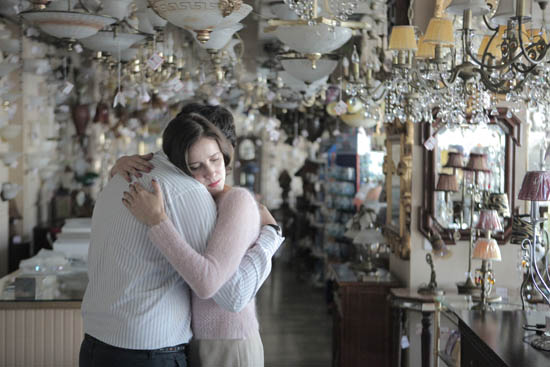
Yorgos Lanthimos fabricated here a kind of film that passes through conventional understanding. What if deceased people don’t entirely die? Well, “Alps” might have the most immediate and real answer.
The main characters, a group of people that call themselves “The Alps” try to impersonate dead people in a surreal world where that can happen.
Their objective may not be clear, but as the film goes on, we follow the path of one integrant of “The Alps” in particular, who apparently confuses her own feelings with a dead individual’s feelings, causing a complete opposing plot that answers the question of why people not only die but also cease to exist at the moment someone intends to remember them.
With moments that depict a supreme necessity of living for death, causing incorrect interpretations within the frame of a utopian world, this is an intense, provocative and challenging piece that might not be for everyone. However, every member of “The Alps” could be a premise of life known, like the absurdity of existence.
11. Stalker by Andrei Tarkovsky
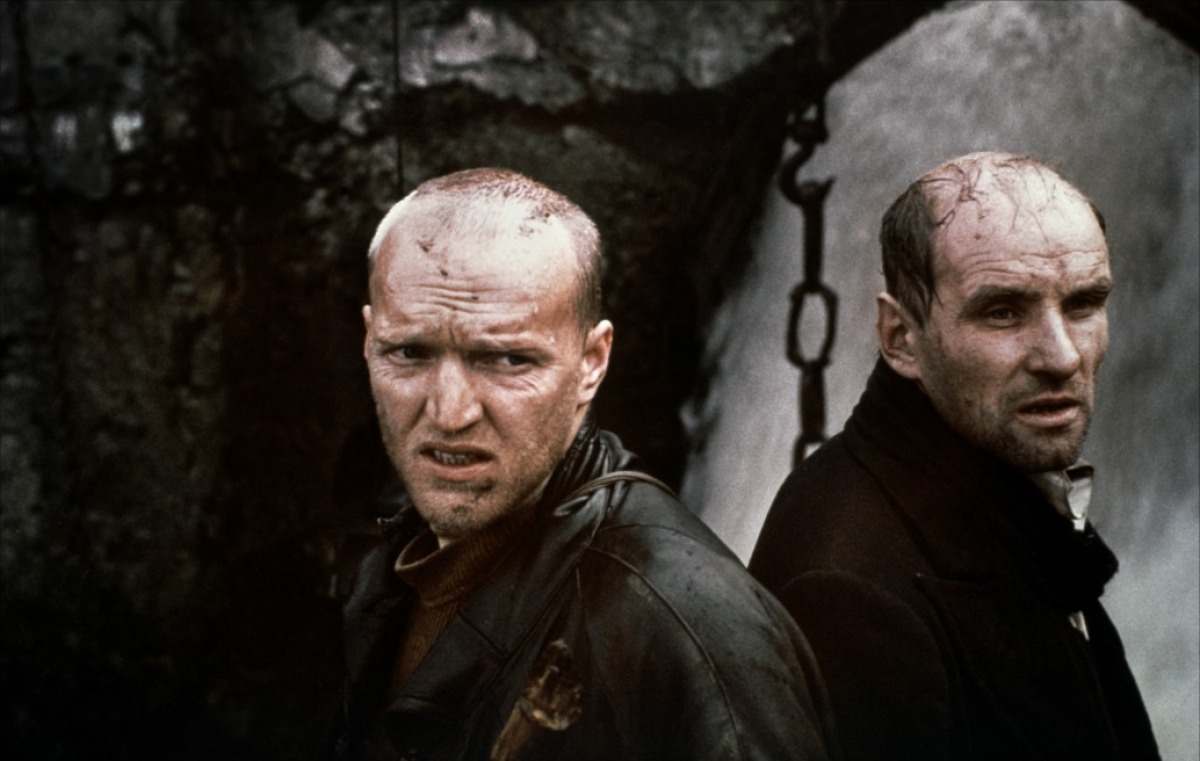
One of the greatest movies by Andrei Tarkovsky, this dramatic film depicts philosophical and psychological issues in less expected manners. A journey guided by the “Stalker” into a place named “The Zone” follow by two particular characters, a writer (Anatoli Solonitsyn) and a professor (Nikolai Grinko), both of them looking for an apparent answer that waits for them.
This movie will not only leave you with deeper questions, but you see that life might be seen as a complete different entity. If you like high art cinema, you must see it.
12. Der Freie Wille by Matthias Glasner
“The Free Will” (“Der Freie Wille”) is a wrenching and impressive German film directed by Matthias Glasner that conveys high emotional complexity, which focuses on the perspective of a man named Theo Stoer (Jürgen Vogel), who apparently had an opportunity by the German society for being a serial rapist.
How this man earned a freedom granted after nine years in a psychiatric ward and its consequences is all that the movie is about. However, as this piece is directed by Glasner, there are humanizing details in every shot, capturing every mental state of the main characters.
In doing so, this film becomes more than an attempt to depict the human relationship against constant temptations by damaged souls.
This is a “must see” of modern German cinema, brilliantly uncompromising and possessing a tremendous example of how things could have been.
13. La doppia ora by Giuseppe Capotondi
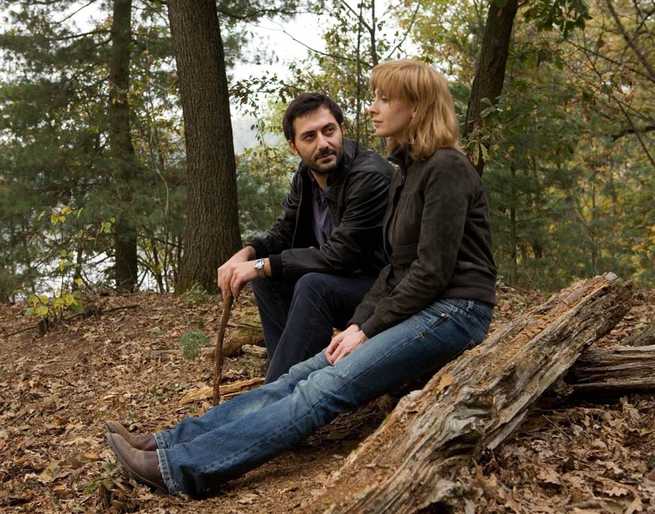
An Italian thriller from 2009 directed by Giuseppe Capotondi tells the story of Sonia (Ksenia Rappoport), a hotel maid in Turin, and her consequences of seeing a guest fall from the window of the hotel, that affects uncertain relationships, in particular with her beloved Guido (Filippo Timi), and mysterious deaths from nothing.
This lesser-known piece is narrated with great elegance, which some might encounter fascinating or manipulating, but it brilliantly involves a romantic story lying between a non-real world that might be only an illusion or a simple wishful point of view. Not a “must see” but a film that will leave the audience address a presence in their moral opinion.
14. The White Ribbon by Michael Haneke
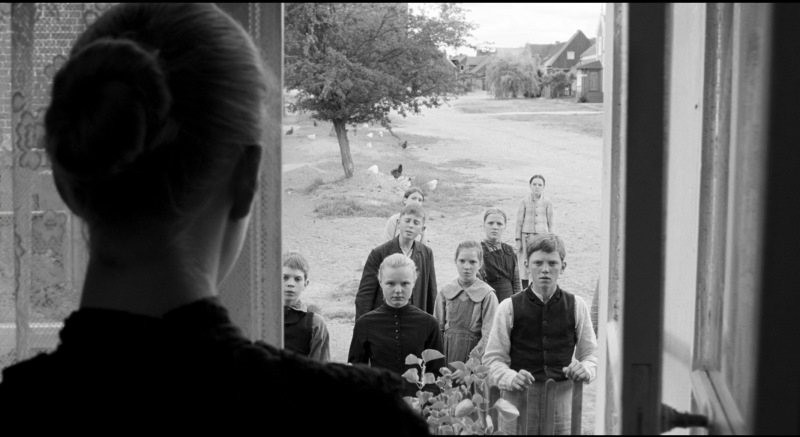
Set in a German Village before World War I, this black and white drama film by Michael Haneke depicts more questions than answers.
The story is told by a schoolteacher (Christian Friedel) with only known facts that start to immerse the village and the villagers into dark and mysterious bad things. Incidents that leave the viewers with no real idea how they could happen are an extra character in the plot. This kind of film could only be directed by Haneke.
As the story is told, a feeling of misfortune to the “good people” of the village becomes more and more confusing, to a point that someone could realize that all bad things are simple and fair, and others could realize that the natural disorder of simple incidents prevent the possibilities of losing faith in order to catch those responsible for the disturbing and evil acts.
With very simple shots at certain moments, this film will cause you profound meditation of how the violence and humanity are not far from what we could think.
15. Three Colors: Blue by Krysztof Kieslowski
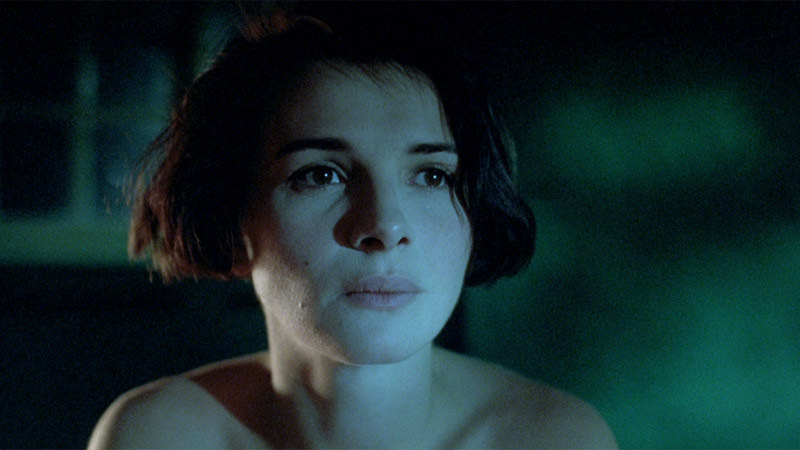
The first of the Three Colors trilogy by Kieslowski takes form from the French flag’s first color, that represents “liberté” in an ironic way.
After Julie, the film’s protagonist, experiences the tragedy of the sudden death of her famous composer husband and her daughter, the reality that follows must be interpreted as a consequence of her surreal debilitating pain, surrounded by the experience of being loved, being heard, being seen by gentle people apparently living in another reality, almost like another kind of liberty.
Despite her necessity to live behind the facts, the people, and the music composed by her husband, she encounters spontaneous connections of herself that otherwise would not happen, so she can open to the experience of being loved at the same time that her husband’s composition takes form by her own feelings and subtle actions, to finally find her salvation.
Kieslowski magnifies the importance of each sequence so that every second has his moral and intelligent way to pass. The scene of a sugar cube soaked in a cup of coffee, showing Julie’s necessity to observe the less important things that surround her reality, only last six seconds.
On the other hand, the sublime music by Zbigniew Preisner gives us a chance to follow the life of someone in their darkest moments. An imperdible masterpiece of modern cinema.
Author Bio: Hodek is a 20 physicist student at UNAM (Mexico), his “first film” was “Los Olvidados ” and he wishes his last film would be that great. He considers this life as an unique chance to transcend the boundaries of ordinary people. And cinema might be the best way.